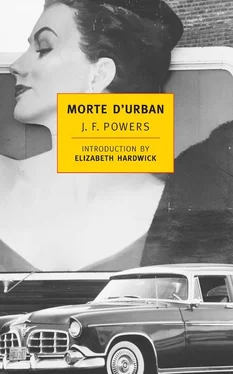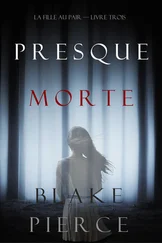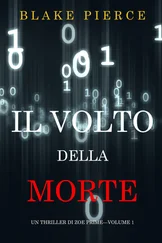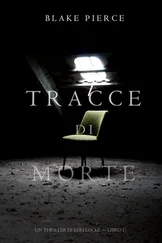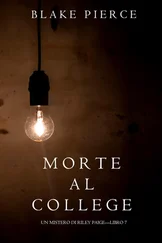That evening the secretary of the women’s group phoned the rectory, and, after a date was agreed upon, Father Urban inquired: “Will the moderator be there?”
“He can’t always attend, you know.”
“No?”
“He’s the busiest priest in the diocese, you know.”
“Let’s just say he’s the busiest bishop.”
On the night Father Urban addressed the group, the moderator failed to appear. However, he sent word that it was now his hope to attend the next meeting, and the group’s president made quite a bit more of this hope than she did of the fact that Father Urban was there.
Father Urban was unhappy about this, and, of course, about the Bishop’s failure to show up, but nobody could have guessed it. He gave his subject (“The Hand that Rocks the Cradle Rules the World”) everything he had, and then flatly refused to accept the envelope tendered him by the chairman. “Not a-tall, not a-tall.” During the refreshment period — just coffee, since Lent had begun — he exchanged a few words with Sylvia Bean. Sylvia, not a member of the group, had come as the guest of an older woman. “And I’m certainly glad I did. Too bad the Bishop couldn’t come tonight.”
Sylvia’s companion, who must have seen many such nights, said, “He’s a very busy man, I’m told.”
“Just about the busiest priest in the diocese,” said Father Urban. He returned to the rectory that night still in a quandary. He had hoped to probe the Bishop about the future of the parish, but gently, gently. The refreshment period would have been the time for it, the two of them going on with a subject scarcely raised, or not going on with it, as the case might be. A word from Father Urban, a word from the Bishop, and they would have known where they were — Order and Diocese — and neither would have suffered any embarrassment. It would have been so much better that way, better than asking for an appointment, and having to state one’s business.
“Dear James asked me today how you liked parish work,” Monsignor Renton said one night in the upper room, about a week later. Monsignor Renton still called at the rectory, though not so often as when Phil was there.
“What’d you tell him?”
“I said I thought you liked it. Say, what’d you do to Cox and Box? They’re really down on you.”
“I don’t know why they should be, unless…” Father Urban described the attempt made by the curates to spike the all-cartoon programs.
“That sounds like ’em all right. You’d never know it was that, though, to hear ’em talk. They say you’ve got your eye on St Monica’s.”
“What will happen here — in your opinion, Monsignor?”
“Oh, some hot shot’ll get it. I’d put in for it myself, if it weren’t for Orchard Park.”
“Somebody who’ll build?”
Monsignor Renton looked bleak at the thought. “At least Phil was spared that. That would’ve been the death of him.”
“And then you would’ve blamed me.”
“Yes, if I hadn’t found out what was behind it all.”
“What was behind it all?” Father Urban, who had fought squarely and fairly in the battle to influence Phil, and had emerged the winner, was wary of alibis from the loser. If Father Urban wasn’t the one most responsible (after God, of course) for Phil’s decision to build, then who was?
“Dear James,” said Monsignor Renton. “He met Phil on the street a few days before we left. ‘Build or else,’ he said. Phil told me that in Florida.”
Johnny Chumley, who was present when Monsignor Renton revealed this, said, “Yes, that’s true. The Pastor told me that before he left.”
“So there’s your villain,” said Monsignor Renton.
The Bishop’s ultimatum to Phil, and his asking how Father Urban liked parish work, and what Cox and Box, and possibly others, were saying — all these were considerations that led Father Urban to seek an appointment with the Bishop. Time was another. If the Bishop was in a hurry to build, wouldn’t Father Urban be the man to do the job for him? In this connection, it had occurred to Father Urban that Phil could be more useful to the parish dead than alive — the old coach gone but the big game still to be played, and won, for him. And if Father Urban did the job, the Bishop needn’t feel that he had to turn the parish over to the Clementines. There would be other ways in which they could be repaid. In time, the Bishop might come to think of the Clementines as his Praetorian Guard, standing between him and his own clergy, always ready to assume the risks and privileges of their special position. In any case, Father Urban would see the Bishop and find out whether there was any point in keeping the parishioners in a state of preparedness. As it was, more and more of them were getting after him to build.
The interview, held in the Bishop’s office at the Chancery, got off on the wrong foot — with the Bishop patting a copy of the brochure that lay on his desk and saying, with a smile, “For some reason, I hadn’t pictured you as a gardener, Father Urban.”
“It came as something of a shock to me, too, Your Excellency, but you know how it is with these things.” Somebody at the Novitiate had gone over the brochure with a fine-toothed comb, removing some of Wilf’s copy (“Known for its shade and water,” for instance, which was to have appeared on the cover, was missing, and the title itself, which had begun as “Oh, Come All Ye Faithful!” become “Welcome to St Clement’s Hill,” become “You and St Clement’s Hill,” had ended up as “St Clement’s Hill”), but the photographs had survived, including, unfortunately, the one that had caught the Bishop’s eye. That one had already drawn a gleeful notice from Father Louis. “Strongly advise you read ‘The Man with the Hoe,’” he’d written, and this Father Urban had done late one night in the upper room — a recreation he hoped wouldn’t become popular at the Novitiate in connection with the photograph of him in the garden, though he could see how it might.
“Well, Father?” said the Bishop, after asking that Wilf be thanked for the brochure.
“This more or less begins as a progress report, Your Excellency, but it ends in a question. That’s why I’ve come to you,” said Father Urban, wondering, though, if Bishop Conor might not be repelled by flattery of the usual sort. He was a medium-sized man, about twelve pounds overweight, with iron gray hair clipped too short and high at the sides, revealing that he’d had a bad case of scalp acne at one time. He hadn’t distinguished himself as an athlete or scholar in the seminary, nor even as a scourge of indecency since rising to the hierarchy. He was another one of those good boys who had known, from about the third grade on, that his day would come, and indeed it had, though in a smaller way than he’d once hoped. Disappointment and acne had marked him. He was restless, and he wasn’t doing quite enough about the conceit that is the occupational hazard of his office. “Since I’ve been filling in at St Monica’s, we’ve been trying, Father Chumley and I, just to hold the line. We thought we’d have our hands full doing just that, until Father Smith returned — but that, unfortunately…”
“Unfortunately,” said the Bishop.
“Busy as we were, Father Chumley and I, we did manage to take the parish census. (Father Chumley worked like a dog, Your Excellency.) Now, along with taking the census, we ran a little survey to find out how people felt about the present church. As you know, we have a standing-room-only situation every Sunday at the late Masses. Well, we found that the great majority of parishioners would favor or strongly favor a new church. They understand what this would mean, too — to them and from them. Now, although we didn’t question them along any such lines, I think I can say that our parishioners, by and large, are ready and willing to accept the responsibility of building and paying for a new church. They have that responsibility, of course, but the point is that they want it. In fact,” said Father Urban, talking and smiling at the same time, a thing he’d noticed Protestants did better than Catholics — some of those ministers on TV got in their best licks while smiling—“there’s been agitation along that line that I haven’t known quite how to handle. So the question is , Your Excellency.”
Читать дальше
